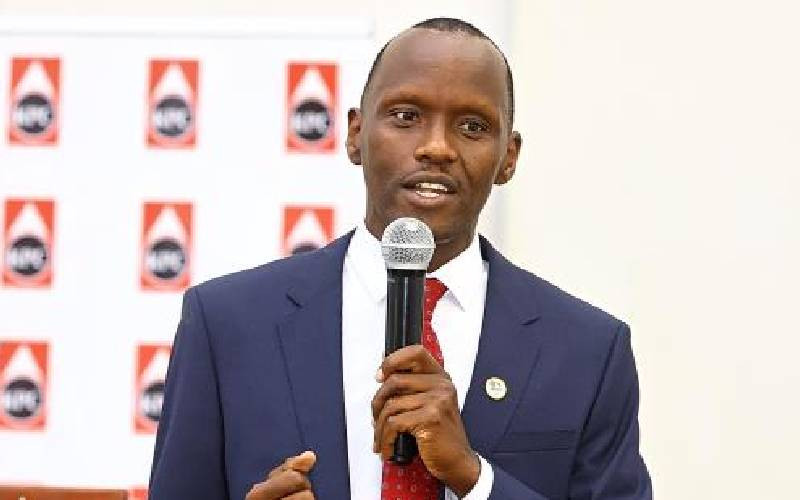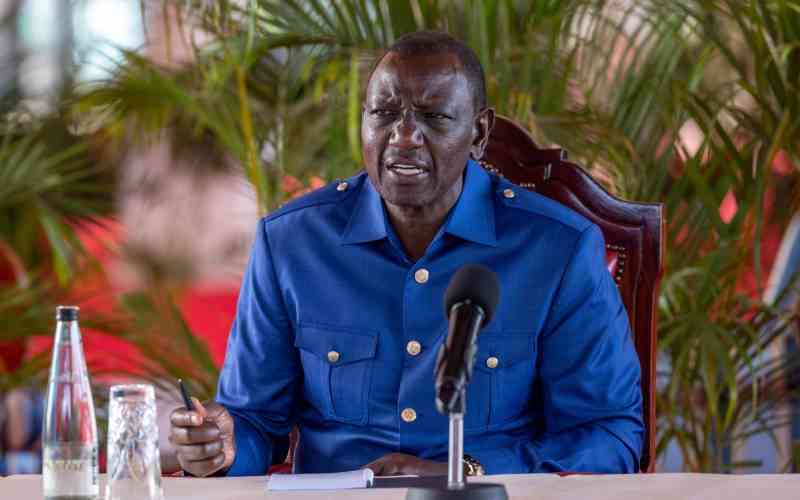By Moses Michira
Nairobi, Kenya: For the first time, the Government is facing uncertainty over how it will fill the deep hole in its wallet as it counts down the two weeks to Budget Day.
As evidence of the Government’s desperation, The Standard has learnt that the National Treasury is preparing two different supplementary budgets as options for raising the extra cash needed to fund the record Sh1.6 trillion Budget.
The Budget is Sh342.6 billion shy of its target, and the Government has already paid Sh1.4 billion to two Anglo Leasing companies without the approval of Parliament.
It hopes the payment will secure its plans to raise Sh174 billion ($2 billion) from foreign creditors next month through a sovereign bond. Because it has already factored the money into this year’s budget, Treasury is preparing for the worst if things fail to go according to plan.
The bond would partly finance one of the supplementary budgets, while the other would rely on a less attractive programme of local borrowing and heavy cuts on Government spending to pay MPs, State officers and other public servants.
If the bond flops or delays, the impact on the economy would be severe, with higher bank interest rates caused by the Government’s local borrowing choking investment and stalling development projects.
It would also increase the level of domestic debt currently at Sh1.21 trillion to well over 50 per cent of the value of the economy — measured as the Gross Domestic Product (GDP).
The international bond’s issuance was delayed due to uncertainty in the international markets, and a dispute with Parliament over the Sh1.4 billion Anglo Leasing payments.
Cabinet Secretary Henry Rotich confirmed that the huge revenue hole faced by Treasury gives him limited options. Borrowers would be hit by higher interest rates and the shilling would weaken.
Among the country’s most pressing needs is repayment of a Sh52 billion loan ($600 million) that was due last week, but the State got a three-month temporary reprieve, albeit at a very huge cost.
The latest financial crisis explains the panic that has hit the Government, as indicated by the executive order to pay the controversial Sh1.4 billion to two European companies in contracts related to Anglo Leasing.
Treasury insiders said plans had already been put in motion to cut national spending to accommodate the Sh174 billion gap just in case floating of the sovereign bond is delayed or flops.
Spending plans
“We have been revising the budget in the context of Supplementary I and II,” explained the source.
Stay informed. Subscribe to our newsletter
He, however, did not disclose the programmes that would be affected by the revised spending plans.
Rotich had earlier informed the media that the bond would be floated before June 30, when the current financial year ends, echoing President Uhuru Kenyatta’s optimism in having a successful issue.
The State has a cumulative budget shortfall of Sh329 billion in the current financial year. Rotich told Parliament when presenting the budget last year that Sh223 billion would be raised through borrowing from the other countries, including the Euro Bond.
The funding crisis has been worsened by weaknesses in the country’s key economic sectors of tourism and agriculture, which account for the bulk of the country’s foreign exchange revenue inflows.
Repeated terror attacks in the midst of further threats from the Al-Shabaab militia group have caused panic among tourists, leading to massive booking cancellations this month, prompting thousands already on holiday to cut short their stay.
Last year, tourist arrivals were down 300,000 to 1.4 million on rising terror threats. Poor rains and low prices for its key exports of tea and coffee in the international markets have hit agriculture, which contributes to about a quarter of Kenya’s economy.
Robert Bunyi, an investment banker, says it is absolutely critical for Kenya to raise the funds through the sovereign bond.
“Kenya must just float that bond,” said Bunyi, noting that tourism and agriculture sectors were both heading south.
“The other options of borrowing locally or cutting back on services could be too painful on the citizens.”
He explains that the Government could crowd out the private sector if it opts to raise the funds locally through bonds, a scenario that could push up the current interest rate that averages at 20 per cent to new highs.
In his estimate, the sovereign bond could be raised at about 12 per cent interest, going by rates in comparable economies and Kenya’s credit rating of B+.
President Kenyatta had explained that issuance of the bond was critical to service delivery, when defending his directive to pay the Sh1.4 billion owed to Anglo Leasing firms, last week.
“There was no way we could go for this particular bond without first having cleared our international obligations. So I gave that directive,” said Uhuru.
Sources at the National Treasury said the payments to two claimants, First Mercantile Securities Corporation and Spacenet Inc, were made on Thursday.
Rotich had factored settlement of the Sh1.4 billion debt in his budget last year but the item had been disguised as an allocation for ‘guaranteed debt payments and other non-discretionally expenditures’.
Non-settlement of the debts has been the biggest barrier to Kenya’s intention to issue the bond.
There have been fears that the outstanding claims by the two firms owned by Mr Anura Perera, a Kenyan with Sri Lankan roots, would impact on the success of the bond, especially after the ruling by international courts. State House spokesman Manoah Esipisu had earlier announced that Uhuru wanted the bond issued to protect country’s economy from interest rate shocks that would follow any domestic borrowing by Government.
 The Standard Group Plc is a
multi-media organization with investments in media platforms spanning newspaper
print operations, television, radio broadcasting, digital and online services. The
Standard Group is recognized as a leading multi-media house in Kenya with a key
influence in matters of national and international interest.
The Standard Group Plc is a
multi-media organization with investments in media platforms spanning newspaper
print operations, television, radio broadcasting, digital and online services. The
Standard Group is recognized as a leading multi-media house in Kenya with a key
influence in matters of national and international interest.
 The Standard Group Plc is a
multi-media organization with investments in media platforms spanning newspaper
print operations, television, radio broadcasting, digital and online services. The
Standard Group is recognized as a leading multi-media house in Kenya with a key
influence in matters of national and international interest.
The Standard Group Plc is a
multi-media organization with investments in media platforms spanning newspaper
print operations, television, radio broadcasting, digital and online services. The
Standard Group is recognized as a leading multi-media house in Kenya with a key
influence in matters of national and international interest.








